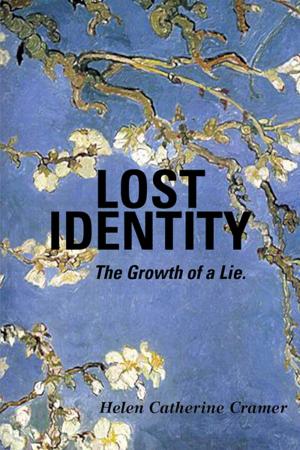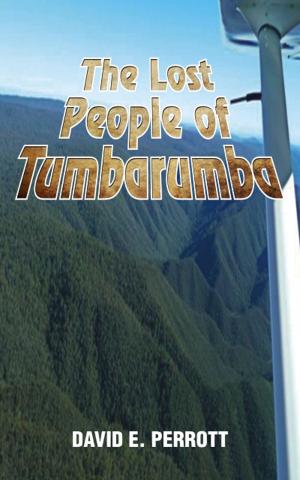| Author: | Douglas F. Birch | ISBN: | 9781921681998 |
| Publisher: | ReadOnTime BV | Publication: | June 4, 2012 |
| Imprint: | Smashwords Edition | Language: | English |
| Author: | Douglas F. Birch |
| ISBN: | 9781921681998 |
| Publisher: | ReadOnTime BV |
| Publication: | June 4, 2012 |
| Imprint: | Smashwords Edition |
| Language: | English |
It all began with a dilemma. And the dilemma was profoundly debilitating. It arose in the mind of an enthusiastic young man who had been raised in the circumscribed and ambivalent environment of a particular Presbyterian manse. Sunday by Sunday my father preached the life-affirming reality of Jesus of Nazareth. Imperceptibly at first, yet with increasing clarity as brain and body developed, all that talk and all that music combined to yield a fascinating perception. It appeared that this man had a focus that extended beyond the horizons of common experience. His mind, it seemed, was attuned to a reality that others could not comprehend; yet his description of it I found to be authoritative and utterly compelling. Whence came this perception? Certainly not from his own community which seemed determined to reject him and his views. Neither was it grounded in the communities of my own experience, which, though owning allegiance to him, rarely missed an opportunity to misrepresent him. Nevertheless, despite their repeated failures, these same communities continued to honour him in their music and public speech. Thus it was that by the time adolescence had matured into young adulthood, the Jesus phenomenon had become the only avenue to a genuine life and the person of this particular man of irreplaceable importance for survival. The legacy of this nurture was a virtual reality which was focused exclusively on the rhythms of the church; its festivals, practices, language, thought forms, people and world view. Central to this latter was the dominant figure of Jesus of Nazareth whose significance was all-embracing, inescapable and enthusiastically acknowledged. From this regulated if claustrophobic bastion I ventured upon a career in the world of Microbiology.
The experience was like entering a parallel universe. The dilemma emerged as I quickly discovered that the concepts that dominated the thinking and language of the church had no currency whatsoever in the biological world. Monumental theological realities that were both the 'raison d'être' and the 'sine qua non' of the church's existence: Salvation, Sin, Forgiveness, Atonement, Redemption, etc. shared no points of contact with the world of biology. Biology sang from an entirely different song sheet. In this environment, activities were not proscribed because they were deemed evil or prescribed because they were deemed good. In this regard, the Genesis myth was unhelpful, indeed downright misleading. In that account, Man was said to have acquired the ability to distinguish between good and evil by consuming the fruit of a tree that grew in the Garden. It took little understanding of biology to discover that there is no such tree in the natural world. This is not meant as a botanical statement but as a mythical statement of fact. The process by which Man acquired an ethical sense may be unknown to us. However, it is an absolutely incontrovertible fact that he did not acquire it from any external reservoir in the natural world. For there are no ethics to be found there.
It all began with a dilemma. And the dilemma was profoundly debilitating. It arose in the mind of an enthusiastic young man who had been raised in the circumscribed and ambivalent environment of a particular Presbyterian manse. Sunday by Sunday my father preached the life-affirming reality of Jesus of Nazareth. Imperceptibly at first, yet with increasing clarity as brain and body developed, all that talk and all that music combined to yield a fascinating perception. It appeared that this man had a focus that extended beyond the horizons of common experience. His mind, it seemed, was attuned to a reality that others could not comprehend; yet his description of it I found to be authoritative and utterly compelling. Whence came this perception? Certainly not from his own community which seemed determined to reject him and his views. Neither was it grounded in the communities of my own experience, which, though owning allegiance to him, rarely missed an opportunity to misrepresent him. Nevertheless, despite their repeated failures, these same communities continued to honour him in their music and public speech. Thus it was that by the time adolescence had matured into young adulthood, the Jesus phenomenon had become the only avenue to a genuine life and the person of this particular man of irreplaceable importance for survival. The legacy of this nurture was a virtual reality which was focused exclusively on the rhythms of the church; its festivals, practices, language, thought forms, people and world view. Central to this latter was the dominant figure of Jesus of Nazareth whose significance was all-embracing, inescapable and enthusiastically acknowledged. From this regulated if claustrophobic bastion I ventured upon a career in the world of Microbiology.
The experience was like entering a parallel universe. The dilemma emerged as I quickly discovered that the concepts that dominated the thinking and language of the church had no currency whatsoever in the biological world. Monumental theological realities that were both the 'raison d'être' and the 'sine qua non' of the church's existence: Salvation, Sin, Forgiveness, Atonement, Redemption, etc. shared no points of contact with the world of biology. Biology sang from an entirely different song sheet. In this environment, activities were not proscribed because they were deemed evil or prescribed because they were deemed good. In this regard, the Genesis myth was unhelpful, indeed downright misleading. In that account, Man was said to have acquired the ability to distinguish between good and evil by consuming the fruit of a tree that grew in the Garden. It took little understanding of biology to discover that there is no such tree in the natural world. This is not meant as a botanical statement but as a mythical statement of fact. The process by which Man acquired an ethical sense may be unknown to us. However, it is an absolutely incontrovertible fact that he did not acquire it from any external reservoir in the natural world. For there are no ethics to be found there.















